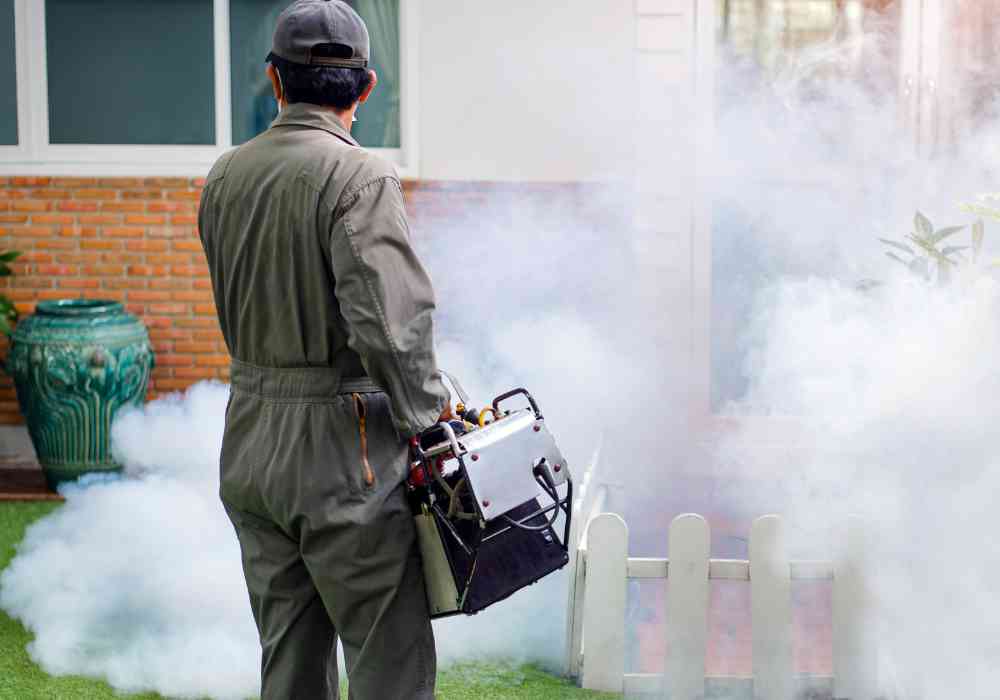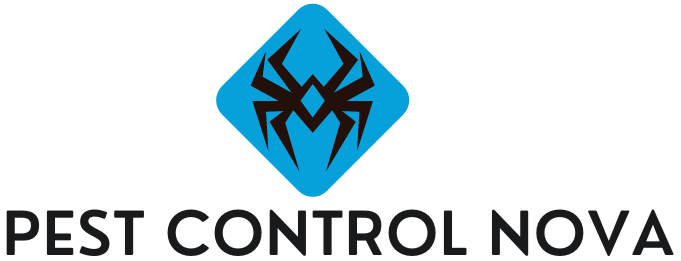
Mosquitoes are common household pests that can cause annoyance, discomfort, and in some cases, transmit diseases. In addition to proper sanitation and hygiene practices, pest control is an effective measure to manage mosquito infestations. As a professional copywriting journalist, I have looked into the matter and discovered that there are several pest control techniques that can help get rid of mosquitoes and prevent their reoccurrence.
Key Takeaways:
- Pest control is an effective measure to manage mosquito infestations.
- There are several pest control techniques that can help get rid of mosquitoes and prevent their reoccurrence.
Understanding Mosquito Behavior and Habitats
When it comes to controlling mosquito populations, it’s essential to understand their behavior and the environments they thrive in. As a pest control journalist, it’s my responsibility to provide you with useful insights to help you get rid of these pesky insects. In this section, I’ll guide you through the behavior patterns and habitats of mosquitoes to aid in your pest control efforts.
Mosquito Behavior
Mosquitoes are known for their ability to transmit diseases, and they are a common nuisance in many parts of the world. Female mosquitoes require a blood meal to reproduce, and they use their wings to fly to their host. These pests are most active during dawn and dusk, and they are attracted to carbon dioxide, heat, and moisture.
Once a mosquito has found a host, it uses its proboscis to insert into the host’s skin and begins feeding. Female mosquitoes prefer human blood, but they can also feed on other mammals and birds.
Mosquito Habitats
Mosquitoes lay their eggs in standing water, so areas with stagnant water are prime mosquito breeding grounds. Common habitats include ponds, drainage ditches, and even small puddles. It takes about a week for mosquito eggs to hatch, and then they develop into larvae and pupae before emerging as adults.
In addition to standing water, mosquitoes are also attracted to areas with dense vegetation, as it provides shelter and a food source. Shade also provides the ideal environment for mosquitoes, which is why they tend to be more active during dawn and dusk.
Now that we have a better understanding of mosquito behavior and habitats, we can explore different pest control techniques that can help prevent infestations.
Common Pest Control Techniques for Mosquitoes
When it comes to getting rid of mosquitoes, there are several pest control techniques available. The most common methods include the use of insecticides, fogging, and larvicides. These traditional approaches aim to kill adult mosquitoes and their larvae.
Insecticides are chemicals that are designed to kill adult mosquitoes. They can be applied as sprays, coils, or foggers. Fogging involves releasing insecticides into the air as a mist to target adult mosquitoes. Meanwhile, larvicides are chemicals that target mosquito larvae in standing water sources like ponds, pools, and gutters.
While these methods can be effective, they also come with some drawbacks. Insecticides can harm beneficial insects and contaminate the environment, while fogging can also affect people with respiratory problems. Additionally, larvicides may only be effective for a limited time.
Thankfully, there are also eco-friendly alternatives to traditional pest control techniques. Mosquito traps and repellents are examples of natural solutions that can be used to repel or kill mosquitoes. These methods aim to disrupt the mosquito’s ability to locate its prey, making it less likely to bite people or animals.
Overall, the best pest control technique for mosquitoes depends on various factors such as the severity of the infestation and the type of environment. Consulting with a pest control professional can help determine the most suitable method for your unique situation.
Limiting Mosquito Populations Through Source Reduction
One effective strategy for controlling mosquito populations is source reduction. This involves identifying and eliminating breeding sites to prevent mosquitoes from reproducing. By reducing the number of breeding sites, it becomes more difficult for mosquitoes to multiply, ultimately resulting in fewer mosquitoes overall.
The most effective way to implement source reduction is by removing standing water around your home or business. Mosquitoes require standing water to lay their eggs, so by eliminating this water, you can greatly reduce the chances of a mosquito infestation. Make sure to regularly empty any containers that may collect water, such as buckets, bird baths, and flower pots. Keep gutters clean and well-maintained to prevent water from accumulating. If you have a swimming pool, be sure to keep it properly chlorinated and covered when not in use.
Good landscaping practices can also help limit mosquito populations. Keep bushes and grass trimmed to prevent excessive growth, which can provide ideal hiding spots for mosquitoes. Consider planting mosquito-repelling plants, such as lavender, rosemary, and citronella, around your property.
In addition to these measures, biological control agents can also be used to limit mosquito populations. These agents are natural predators of mosquitoes, such as dragonflies and fish, and can be introduced to areas with high mosquito activity to help eliminate the pests.
Professional Pest Control Services for Mosquitoes
When it comes to dealing with a mosquito infestation, hiring a professional pest control service is often the most effective solution. Not only do these experts have the knowledge and expertise to identify the root cause of the problem, but they also have the resources to effectively eliminate the mosquitoes from your property.
One of the main advantages of professional pest control services is their ability to customize treatment plans based on the specific needs of each customer. Depending on the severity of the infestation and the size of the property, the pest control team may use a combination of methods such as insecticides, fogging, or mosquito traps.
Aside from their experience in eliminating mosquitoes, professional pest control services can also provide valuable advice on how to prevent future infestations. This may include recommendations on maintaining proper landscaping, eliminating standing water, and using mosquito repellents.
While there are DIY pest control options available, it can be challenging to achieve long-term mosquito control without the expertise of a professional. Hiring a pest control service not only ensures that the mosquitoes are effectively eliminated but also gives you peace of mind knowing that your property is protected from future infestations.
Integrated Pest Management for Mosquito Control
Integrated pest management (IPM) is a comprehensive and effective approach to mosquito control that involves combining various strategies to achieve long-term results. IPM considers the behavior and habits of mosquitoes, their habitats, and environmental factors that may contribute to their population growth. The goal of IPM is to prevent mosquito infestations by targeting the root causes of the problem.
IPM combines both chemical and non-chemical methods to control mosquito populations. Chemical methods include the use of insecticides, larvicides, and fogging. Non-chemical methods include reducing mosquito habitats, promoting natural predators of mosquitoes, and using mosquito traps and repellents. By using a combination of these methods, IPM provides an effective and sustainable approach to mosquito control.
One of the benefits of IPM is that it is tailored to the specific needs of the area being treated. Mosquito control specialists will evaluate the environment and develop a customized plan that takes into account the local climate, geography, and other factors that may affect mosquito populations. This ensures that the treatment approach is effective and efficient.
Another advantage of IPM is its focus on preventing future mosquito infestations. By addressing the root causes of the problem, such as standing water and lack of proper landscaping, IPM helps to limit the conditions that allow mosquitoes to thrive. This proactive approach helps to maintain long-term control of mosquito populations.
Overall, integrated pest management is a highly effective strategy for mosquito control. By combining various methods and addressing the underlying causes of the problem, IPM offers a sustainable approach to eliminating mosquito infestations. If you are struggling with a mosquito problem, consider reaching out to a professional pest control service that specializes in integrated pest management.
Conclusion
In conclusion, pest control methods are highly effective in getting rid of mosquitoes and preventing their return. By understanding the behavior and habitats of mosquitoes, we can implement targeted pest control techniques such as insecticides, larvicides, and traps. Additionally, limiting mosquito populations through source reduction strategies like removing standing water and maintaining proper landscaping can greatly reduce the need for pest control measures.
For those dealing with severe mosquito infestations, professional pest control services may be the best option. These experts have the knowledge and resources necessary to effectively eliminate mosquitoes and prevent their return.
Integrated pest management (IPM) is another effective approach to mosquito control, combining various methods to achieve long-term results. By taking proactive pest control measures, we can ensure both our health and comfort are protected from these pesky insects.
Optimizing Pest Control Effectiveness
Overall, it is important to understand that pest control is not a one-time fix, but rather an ongoing process. By consistently implementing effective pest control measures, we can optimize our pest control effectiveness and prevent future mosquito infestations. Remember to consult with a professional pest control service if dealing with severe infestations or unsure of the best course of action.
FAQ
Q: Can pest control get rid of mosquitoes?
A: Yes, pest control can effectively eliminate mosquitoes. There are various techniques and methods used to target mosquitoes and reduce their populations.
Q: What is the behavior of mosquitoes and their habitats?
A: Mosquitoes have specific behavior patterns and thrive in certain habitats. They breed in standing water, prefer warm and humid environments, and are attracted to factors such as body heat and carbon dioxide.
Q: What are some common pest control techniques for mosquitoes?
A: Traditional approaches for mosquito control include the use of insecticides, fogging, and larvicides. However, there are also eco-friendly alternatives such as mosquito traps and repellents.
Q: How can source reduction help in controlling mosquito populations?
A: Source reduction involves eliminating mosquito breeding sites by removing standing water, maintaining proper landscaping, and using biological control agents. This strategy can significantly reduce mosquito populations.
Q: What are the benefits of hiring professional pest control services for mosquitoes?
A: Professional pest control services have the expertise and resources to effectively tackle mosquito infestations. They offer various treatment options tailored to specific needs and can provide long-term solutions.
Q: What is integrated pest management and how does it apply to mosquito control?
A: Integrated pest management (IPM) is a holistic approach that combines different methods to achieve long-term mosquito control. It involves monitoring, prevention, and the use of least-toxic interventions.
Q: What is the conclusion regarding pest control effectiveness in eliminating mosquitoes?
A: Pest control methods have proven to be highly effective in getting rid of mosquitoes. By implementing proactive pest control measures, you can ensure a healthier and more comfortable living environment.
- Does Flea Treatment Kill Lice? - September 8, 2023
- Does Flea Treatment Kill Mites? - September 8, 2023
- How to Put Flea Treatment on a Dog? - September 8, 2023






